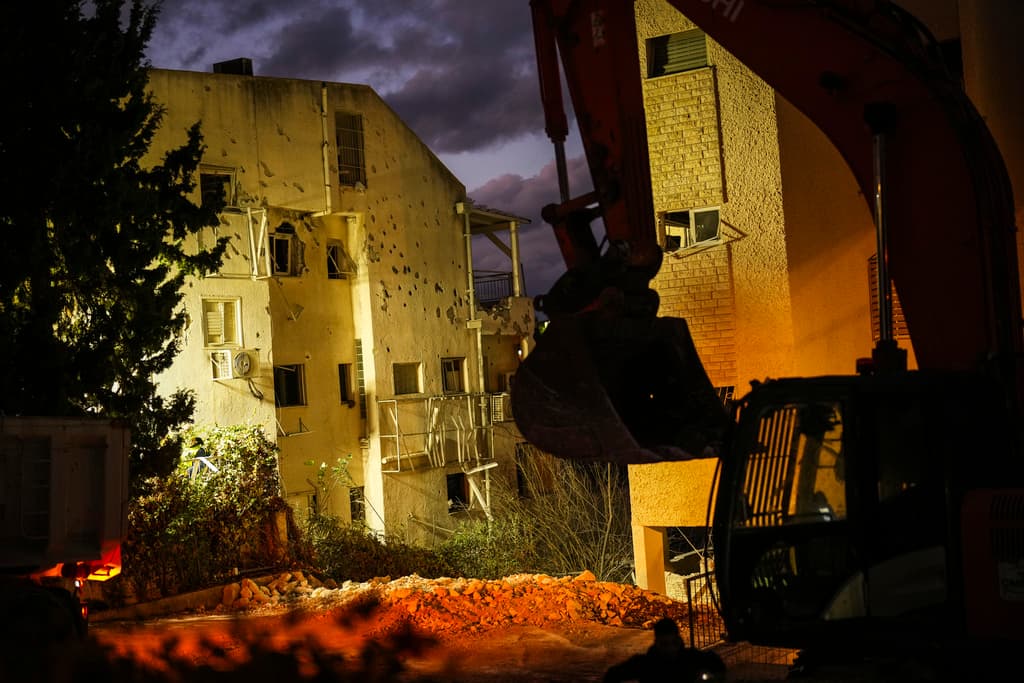Northern Israelis Skeptical They Can Return Home Safely Even as Israel, Hezbollah Set To Sign a Cease-Fire Pact
One observer predicts that after the deal is set Hezbollah ‘will try to return to the border, the IDF will try to prevent it, and nothing will change for northern Israelis, including me.’

With the Jerusalem cabinet set to approve a cease-fire agreement between Israel and Hezbollah onTuesday, Galilee residents are wondering whether the Israel Defense Force will be allowed to enforce its terms.
The 60-day cessation of military activities was negotiated by President Biden’s envoy, Amos Hochstein. Prime Minister Netanyahu gave his nod on Thursday after Mr. Hochstein earlier received a green light from Beirut’s parliament speaker, Nabih Beri. The Shiite speaker is a Hezbollah ally.
“There are a few good things here,” the founder of the northern Israel-based Alma think tank, Sarit Zehavi, tells the Sun about the cease-fire pact. Yet, Hezbollah now “will try to return to the border, the IDF will try to prevent it, and nothing will change for northern Israelis, including me,” she predicts.
One good part of the agreement, she says, is a reported tacit American commitment to the IDF that it could act forcefully if Hezbollah returns to the Lebanese-Israeli border, or attempts to rearm.
The agreement’s 60-day cease-fire promises to usher in renewed efforts by the Lebanese armed forces to disarm Hezbollah. Along with the United Nations Interim Force in Lebanon, the army is also expected to prevent a Hezbollah presence south of the Litani River, a 20-mile tract near the Israeli border.
In essence, the pact is a return to an arrangement dictated by a UN Security Council resolution, 1701, reached in the aftermath of the 2006 Hezbollah war on Israel. An earlier council resolution, 1559, also ordered all Lebanese militias to disarm. Now, America and France are guaranteeing implementation.
Over the years Hezbollah became a stronger military force than Lebanon’s national army. Its Radwan Force became entrenched in the south, dug tunnels into Israel, and planned to capture the Galilee. For months, the IDF has been decimating the Hezbollah leadership and arsenal. It also captured a five-mile belt inside Lebanon, destroying Hezbollah’s tunnels and observation towers, and disbanding Radwan.
“Who would now stop Hezbollah from recapturing the high hills overlooking kitchen windows of Israelis living near the border?” Ms. Zehavi asks. Also, the Lebanese government and army “cannot prevent the rearming of Hezbollah, as the cabinet minister charged with border security and the airports is a Hezbollah member.”
According to some reports, the new agreement contains the removal of American sanctions on President Assad of Syria. In return, Damascus would be expected to seal its border and prevent Iranian arms smuggling to Lebanon.
Mr. Biden and President Macron of France are expected to announce the completion of the agreement on Tuesday. After Mr. Netanyahu initially opposed Beirut’s insistence on French involvement, he relented. Paris reportedly vowed to soften its increasingly anti-Israel rhetoric — including calls to arrest the Israeli leader, as demanded by Hague.
Additionally, Mr. Netanyahu was enticed by Washington’s vow to end a slowdown in arms deliveries to Israel. Mr. Biden has imposed limitations on deliveries of certain congressionally mandated weapons.
Mr. Hochstein for months has shuttled between Beirut and Jeruslaem. After getting the green light from the Lebanese government last week, he arrived at Jerusalem Thursday, telling Mr. Netanyahu that unless he signed on, all mediation efforts would cease.
Mr. Netanyahu will lobby his cabinet partners to vote for the deal. The more complex task he faces, though, will be to convince residents of northern Israel that the pact would guarantee they could return home safely. More than 60,000 Galilee residents have been dislocated and have been living in hotels further south since October 8, 2023. Creating conditions for their return has been the government’s declared goal.
“Anyone saying that the war’s aims were achieved is mistaken,” Mayor David Azulay of Israel’s northernmost town, Metula, told Channel 12 News. “I’ll advise Metula residents not to return. Let them stay in Tel Aviv, or wherever.”
Hezbollah launched its attacks on northern Israel shortly after the October 7 atrocities, declaring solidarity with Hamas in Gaza. The Islamic Republic of Iran has called on its allied militia in Lebanon, Yemen, and elsewhere to support Hamas.
Until the IDF killed Hezbollah’s chief, Hassan Nasrallah, on September 27, the firebrand late leader insisted there would be no cease-fire in Lebanon before victory in Gaza. In recent months the terrorist group suffered major setbacks as its military leadership and assets were decimated.
Under growing pressure from the suffering Lebanese population, Nasrallah’s successor, Naim Qassem, ceased to link Lebanon to Gaza. There are renewed hopes in Israel that after losing Hezbollah’s support, Hamas will now release hostages, ending the Gaza war.
Meanwhile, the two-front war is over-taxing the IDF’s reserve forces. Mr. Netanyahu and military commanders apparently decided, for now, to suspend efforts in Lebanon. Even supporters of the cease-fire agreement, though, are under no illusion that Iran’s most potent regional ally will disappear for good.
Hezbollah has been weakened significantly. Yet the threat to Israel from Lebanon “will not end until we deal with Iran,” Ms. Zehavi says.

